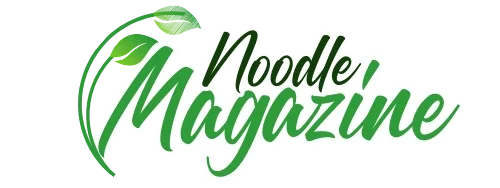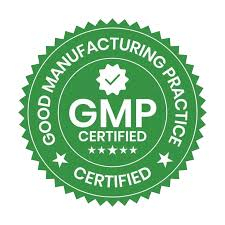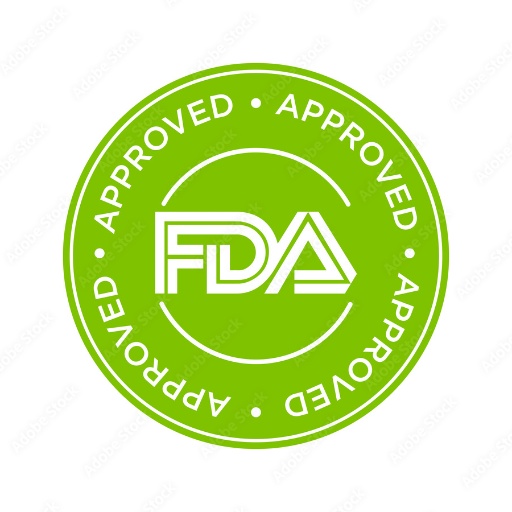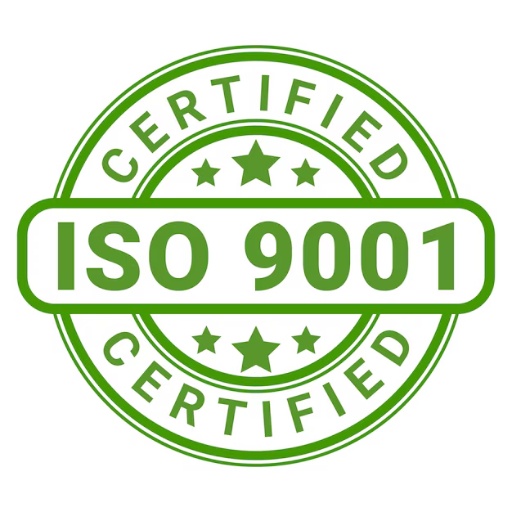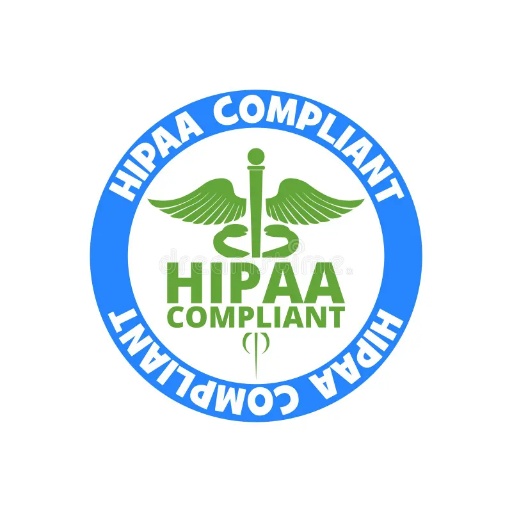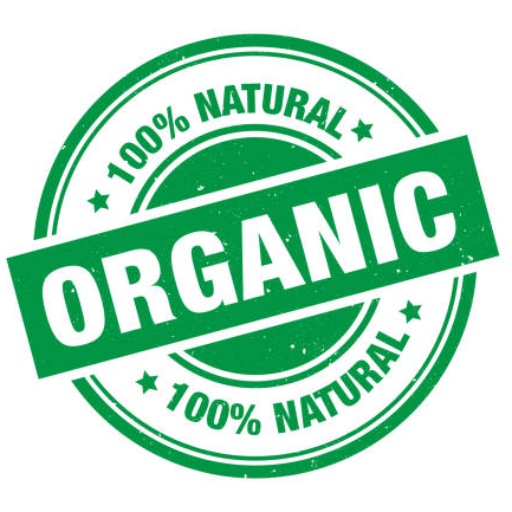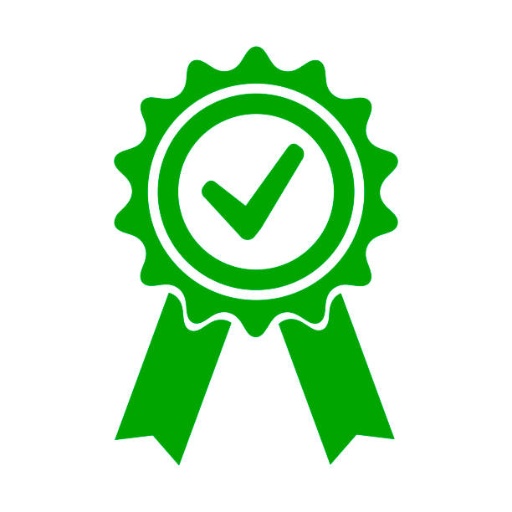Disclaimer
This page explains essential things you should know when using NoodleMagazine’s website and products. This page explains what we take responsibility for and what we don’t. You can think of it as our ‘just so you’re clear’ guide.
Not Medical Advice
NoodleMagazine provides health articles, tips, and product information. But we need to be super clear: we are not your doctor. Nothing on our website, in our emails, or in our social media posts is medical advice.
What This Means
- Our articles are for information only
- Our products are not medicines
- Our tips are general, not made just for you
- Reading our website doesn’t create a doctor-patient relationship
A Word From Dr. Ami-Bree
“As a medical professional, I’ve seen firsthand how important it is for patients to understand the difference between general health information and personalized medical advice. At NoodleMagazine, we provide quality health information, but this never replaces the care you receive from your healthcare providers who know your specific situation.”
Educational Information Only
The information on NoodleMagazine is meant to help you learn about health topics. It’s like a health book or magazine, not like a visit to the doctor’s office.
Examples of What We Provide:
| Type of Content | What It Is | What It Is Not |
|---|---|---|
| Health Articles | General information about conditions | Diagnosis of your specific condition |
| Exercise Videos | General workout ideas | Personal training for your specific body |
| Nutrition Tips | General information about foods | Personalized diet plan for your needs |
| Product Reviews | General information about health products | Specific recommendations for your health concerns |
Talk to Your Doctor
Always talk to your own doctor or healthcare provider before:
- Starting a new exercise program
- Changing your diet
- Taking any supplements or health products
- Trying new treatments for a health condition
- Stopping any medications you’re taking
Your doctor knows your personal health history, any medications you take, and any conditions you have. This makes them the right person to give you advice about your specific health needs.
A Real Example From My Practice
In my years of medical practice, I’ve seen how general health information can be misapplied. One patient read about how green tea can help metabolism and decided to drink 15 cups daily, not realizing this amount of caffeine was dangerous to her heart condition. Another patient stopped taking prescribed medication after reading about natural alternatives online, leading to serious complications. These experiences taught me the importance of clear disclaimers and why we always emphasize consulting with our healthcare providers.
Product Information
NoodleMagazine sells health and wellness products. Here’s what you should know about them:
What Our Products Are For
- Supporting general health and wellness
- Helping with common health goals
- Making healthy habits easier
What Our Products Are Not For
- Treating medical conditions
- Curing diseases
- Replacing prescription medications
- Diagnosing health problems
Product Claims
We try to be honest about what our products can do. We base product information on the following:
- Scientific research, when available
- Industry standards
- Customer experiences
- Manufacturer information
However, the Food and Drug Administration (FDA) has not evaluated all statements about our products. Our products are not meant to be used for diagnosing, treating, curing, or preventing any illness or medical condition.
Results May Vary
Different people may get different results from the same product. Things that can affect how a product works for you include:
- Your age and gender
- Your overall health
- Other medications or supplements you take
- Your diet and exercise habits
- How consistently do you use the product
- Your specific body chemistry
External Links
NoodleMagazine sometimes links to other websites. When you click these links and leave our website:
- We don’t control what’s on those websites
- Those websites have their own terms and privacy policies
- We don’t endorse everything on those websites
We link only to helpful resources, but we can’t check every piece of information on other websites.
User Comments
Many pages on NoodleMagazine allow you to leave comments. When it comes to these comments:
- We don’t endorse the opinions in user comments
- We may remove comments that are inappropriate or harmful
- Other users’ comments are their views, not ours
Comments can provide helpful community insight, but always consider the source and talk to a healthcare professional before following advice from comments.
Website Accuracy
We work hard to make sure the information on NoodleMagazine is accurate and up-to-date. However:
- Health research changes constantly
- We might not catch every error
- There might be delays in updating information
- Some information might be incomplete
How We Try to Ensure Accuracy
- Dr Ami-Bree reviews health content
- We check information against scientific research
- We update articles when new information becomes available
- We correct errors when we find them
If you think something on our website is incorrect, please let us know by emailing noodlemagazined.net@gmail.com.
No Guarantees
We can’t guarantee that:
- Our website will always be available
- Our website will be error-free
- Our products will work the same way for everyone
- Information on our website will be 100% complete or accurate
Limitation of Liability
In simple terms, this means that NoodleMagazine is not legally responsible for problems that might happen from using our website or products. For example:
- If you react to a product
- If you try a fitness tip and get injured
- If you make a decision based on information from our website
- If you buy something that doesn’t work as you hoped
Questions About This Disclaimer
If you have questions about this disclaimer, please get in touch with us:
- Email: noodlemagazined.net@gmail.com
- Phone: (341) 188-0757
- Address: 446 Irvine Turner Blvd, Newark, NJ 07108, USA
Understanding Health Information: A Deeper Look
When you read health information online, it’s essential to understand what you’re reading and how to use it wisely. Let me share some insights from my years as a health professional.
Types of Health Information
Not all health information is the same. Here are the main types you’ll find:
- Scientific Research: Studies done by scientists to learn new things about health
- Clinical Guidelines: Recommendations for doctors based on the best research
- Health Education: General information to help people understand health topics
- Personal Experiences: Stories from people about their health journeys
- Product Information: Details about health products and how they might help
NoodleMagazine mainly provides health education and product information, with references to scientific research when possible.
Difference Between Information and Advice
This is important to understand:
- Information tells you facts and general knowledge
- Advice tells you what YOU should do in YOUR situation
For example:
- “Calcium helps build strong bones” is information
NoodleMagazine provides information, not personalized advice.
Why “One Size Fits All” Doesn’t Work in Health
In my years working with patients, I’ve seen firsthand why general health information can’t replace personalized medical care. Here’s why:
- Each person’s body is different
- Your health history matters
- Your genetics affect how treatments work for you
- Medications you take might interact with supplements
- Your current health conditions change what’s safe for you
- Your lifestyle affects what health approaches will work
This is why we always say, “Talk to your doctor” – it’s not just a legal protection; it’s genuinely the best advice we can give!
Expert Insights on Using Health Information Wisely
As someone who has worked in healthcare for many years, I’ve learned a lot about how people use health information. Here are some tips to help you use health information wisely:
Check Multiple Sources
Don’t rely on just one website or article. Look for the same information in several places, including:
- Government health websites (like CDC.gov or NIH.gov)
- Medical school websites
- Major hospital websites
- Peer-reviewed medical journals
- Multiple health publications
If many reputable sources say the same thing, it’s more likely to be accurate.
Look for Evidence
Good health information tells you where it came from. Look for:
- References to scientific studies
- Quotes from medical experts
- Links to original research
- Mention of where the information was published
- Dates of the research or publication
Be careful with claims that don’t tell you where the information came from.
Consider the Source
Who runs the website you’re reading? Ask yourself:
- Is this a trusted health organization?
- Do they have medical professionals reviewing content?
- Do they sell products related to their advice?
- Do they have a reason to promote certain information?
- Are they transparent about who they are?
NoodleMagazine is run by Dr Ami-Bree Said, a healthcare professional, and we tell you when we’re talking about the products we sell.
Watch for Red Flags
Some warning signs that health information might not be reliable:
- Promises of “miracle” cures
- Claims that one remedy works for many different problems
- Information that goes against what most doctors recommend
- Stories that sound too good to be true
- Pressure to buy something quickly
- No mention of possible risks or downsides
Remember That Science Changes
What we know about health is constantly growing and changing. This means:
- Something that was considered healthy 10 years ago might not be recommended today
- New treatments are continually being developed
- Recommendations might change as we learn more
- Older articles might contain outdated advice
This is normal and good – it means we’re learning more! But it also means you should check the date on health articles and look for the most current information.
How to Talk to Your Doctor About Information You Find Online
Many people feel nervous about bringing up health information they found online when talking to their doctor. Here’s how to do it effectively:
- Print or save the specific information you want to discuss
- Start with an open approach: “I read something about [topic] and wanted to get your opinion on it.”
- Explain why you’re interested: “I wondered if this might help with my [symptom or condition].”
- Ask direct questions: “Is this something that might work for me?” or “What do you think about this approach?”
- Listen to their response with an open mind
Most good doctors appreciate patients who take an interest in their health. They might:
- Explain why the information is or doesn’t apply to you
- Suggest modifications that would be safer or more effective for your situation
- Direct you to better sources of information
- Work with you to incorporate helpful ideas into your care plan
Understanding Health Product Claims
When looking at health products (like those we sell on NoodleMagazine), it’s essential to understand what different types of claims mean:
Structure/Function Claims
These describe how a product might affect your body’s structure or function, like:
- “Supports immune health.”
- “Helps maintain joint flexibility.”
- “Promotes digestive wellness.”
These claims don’t have to be pre-approved by the FDA but must be truthful and not misleading.
Health Claims
These types of claims link an ingredient or nutrient to a lower chance of developing a disease. Examples include:
- “Calcium may help lower the risk of osteoporosis.”
- “Soluble fiber could support heart health.”
Claims like these must either be approved by the FDA or follow specific FDA-approved wording.
Disease Claims
These claims suggest that a product can diagnose, treat, cure, or prevent an illness. For example:
- “Helps manage diabetes”
- “Cures cancer”
- “Prevents Alzheimer’s disease”
Only FDA-approved drugs are allowed to make these kinds of statements. Dietary supplements are not allowed to say this.ure/function claims, not disease claims.
A Note About Testimonials and Reviews
On NoodleMagazine, you might see testimonials or reviews from customers. About these:
- They represent individual experiences
- They are not proof that a product works for everyone
- The results shown are not guaranteed
- Some people might have better results than shown
- Some might have worse results or no results
We don’t allow false reviews, but remember that each person’s experience is unique.
Reality of Health Products: What I’ve Learned
In my years working with patients, I’ve seen how people respond differently to the same products. For example, I once recommended a common magnesium supplement to two patients with similar muscle cramp issues. One patient felt complete relief within days, while the other experienced no benefit and had digestive side effects.
This taught me that even well-studied supplements work differently for different people. This is why at NoodleMagazine, we’re honest about products – we highlight potential benefits based on research and customer experiences, but we never promise specific results.
Health Advice vs. Personal Choice
At NoodleMagazine, we believe in providing information to help you make your own health choices. However, we recognize that:
- Your values and preferences matter in health decisions
- What’s right for one person might not be right for another
- Quality of life is a significant health consideration
- Health decisions are personal
We provide information about options, but the choices are yours to make in consultation with your healthcare providers.
Understanding “Evidence-Based” Health Information
You might hear the term “evidence-based” when discussing health information. Here’s what that means:
Levels of Evidence
Health information comes with different levels of scientific support:
- High-Quality Evidence: Multiple extensive, well-designed studies showing consistent results
- Moderate Evidence: Several studies show mostly consistent results, perhaps with some limitations
- Preliminary Evidence: A few small studies or lab research suggesting potential benefits
- Traditional Use: There is a long history of use in conventional medicine, but limited scientific studies
- Anecdotal Evidence: Based mainly on personal stories and experiences
- Theoretical Benefits: Based on how something might work in the body but not well-studied
NoodleMagazine tries to tell you what level of evidence supports the health information we share.
Risk vs. Benefit: How to Think About Health Choices
Every health decision involves weighing potential benefits against potential risks. Some things to consider:
Potential Benefits
- How likely are the benefits?
- How significant would the benefits be?
- How soon might you see benefits?
- How long might the benefits last?
Potential Risks
- How likely are the risks?
- How serious would the risks be?
- Do you have factors that make risks more likely?
- Are there ways to reduce the risks?
Lower-risk approaches (like most products on NoodleMagazine) may have more modest benefits but fewer safety concerns than higher-risk medical treatments.
Special Considerations for Different Groups
Health information and products affect people differently, especially:
Children
- Children are not just small adults
- Their bodies process things differently
- Products for adults may not be appropriate
- Always consult a paediatrician about children’s health
Pregnant or Breastfeeding Women
- Many supplements and practices haven’t been studied in pregnancy
- What enters the mother’s body may affect the baby
- Extra caution is needed during these times
- Always talk to an obstetrician or midwife first
Older Adults
- Ageing bodies may respond differently to products and practices
- Interactions with medications are more common
- Multiple health conditions may complicate responses
- Appropriate dosages may differ for younger adults
People with Chronic Conditions
- Existing health conditions can change how products affect you
- Some supplements may interfere with medications
- Even “natural” products can affect medical conditions
- Medical supervision is especially important
Our Content Creation Process
To help you understand how to use NoodleMagazine content, here’s how we create our articles:
- Topic Selection: We choose topics based on reader interest and health importance
- Research: We gather information from medical journals, health organizations, and expert interviews
- Writing: Health writers create clear, helpful content
- Expert Review: Dr Ami-Bree or another health professional reviews for accuracy
- Updates: We revise content when new information becomes available
This process helps ensure quality, but remember that no process is perfect, and health information evolves constantly.
When to Seek Immediate Medical Help
While NoodleMagazine provides health information, some situations require urgent medical attention. Don’t wait to read articles or try products if you experience:
- Chest pain or pressure
- Difficulty breathing
- Sudden severe headache
- Sudden confusion or trouble speaking
- Severe abdominal pain
- Uncontrolled bleeding
- Serious injuries
- Thoughts of harming yourself or others
In these situations, call emergency services (911 in the US) or go to the nearest emergency room right away.
Health Information in Context: The Bigger Picture
Understanding how health information fits into your overall health journey is important. Consider:
Your Personal Health History
Information that works for “most people” might not work for you if you have specific health conditions or needs.
Your Healthcare Team’s Advice
Your doctors know your specific situation, and their advice should be given priority over general information online.
Your Health Goals
What matters most to you? Pain relief? Energy? Prevention? Mental clarity? Different goals might lead to different approaches.
Your Resources
Consider what’s realistic for your budget, time, and accessibility when considering health recommendations.
The Importance of Health Literacy
Health literacy means having the skills to find, understand, and use health information to make good decisions. Improving your health literacy helps you:
- Ask better questions of your healthcare providers
- Understand your health conditions better
- Make more informed choices about treatments
- Recognize unreliable health information
- Take a more active role in your health
NoodleMagazine aims to improve health literacy by explaining health topics in clear language.
Using NoodleMagazine as Part of Your Health Resources
For best results, consider NoodleMagazine as one tool in your health toolkit:
- Start with your healthcare providers for personalized advice
- Use NoodleMagazine for general information and product options
- Check government health resources (like CDC.gov) for official guidelines
- Connect with support groups for community and shared experiences
- Keep a health journal to track what works for you
No single source should be your only health resource.
Our Commitment to You
Despite all these disclaimers, we want you to know that NoodleMagazine is committed to:
- Providing helpful, accurate health information
- Being honest about what our products can and cannot do
- Correcting information if we learn it’s wrong
- Prioritizing your well-being over sales
- Responding to your questions and concerns
Reality of Health Information: From My Experience
In my years of medical practice, I’ve observed that health information is most helpful when people understand its limitations. I’ve seen patients become frustrated when general recommendations didn’t work for them, not realizing that health guidance almost always needs to be personalized.
For example, the commonly recommended “drink eight glasses of water daily” doesn’t account for differences in body size, activity level, climate, or medical conditions like heart failure, where fluid intake should be monitored. Similarly, general exercise recommendations might be perfect for one person but harmful for someone with certain joint problems.
This is why NoodleMagazine provides information as a starting point for discussion with your healthcare providers, not as a replacement for personalized advice.
Final Thoughts on Using Health Information Wisely
After years in healthcare, I’ve found that the most successful patients approach health information with a balance of curiosity and caution. They:
- Read widely but critically
- Ask questions rather than make assumptions
- Respect expert opinion while advocating for themselves
- Try new approaches thoughtfully and systematically
- Pay attention to their body’s responses
- Adjust their approach based on results
I hope that NoodleMagazine can be a helpful resource in your journey toward better health, used alongside professional medical care and your good judgment.
Legal Language (Simplified Version)
The following section contains some necessary legal language, which we’ve tried to make as readable as possible:
Warranty Disclaimer
As far as the law allows, NoodleMagazine offers this website and its products without any guarantees. Everything is provided ‘as is’ and ‘as available,’ with no promises or warranties of any kind.
In simple terms, We can’t guarantee that everything on our website will be perfect or that products will work exactly as described for everyone.
Limitation of Liability
IN NO EVENT WILL NOODLEMAGAZINE BE LIABLE FOR ANY INDIRECT, SPECIAL, INCIDENTAL, CONSEQUENTIAL, EXEMPLARY OR PUNITIVE DAMAGES ARISING FROM OR RELATING TO YOUR USE OF THE WEBSITE OR PRODUCTS.
In simple terms: If something goes wrong when using our website or products, there are limits to what we can be legally responsible for.
Indemnification
YOU AGREE TO DEFEND, INDEMNIFY, AND HOLD HARMLESS NOODLEMAGAZINE FROM AND AGAINST ANY CLAIMS, LIABILITIES, DAMAGES, LOSSES, AND EXPENSES ARISING FROM YOUR USE OF THE WEBSITE OR PRODUCTS.
In simple terms, You’re responsible for how you use our website and products.
Contact Information
If you have questions about this disclaimer or need to contact NoodleMagazine for any reason:
- Email: noodlemagazined.net@gmail.com
- Phone: (341) 188-0757
- Mail: NoodleMagazine, 446 Irvine Turner Blvd, Newark, NJ 07108, USA
We appreciate your understanding of this disclaimer and hope you find NoodleMagazine to be a helpful resource on your health journey.
